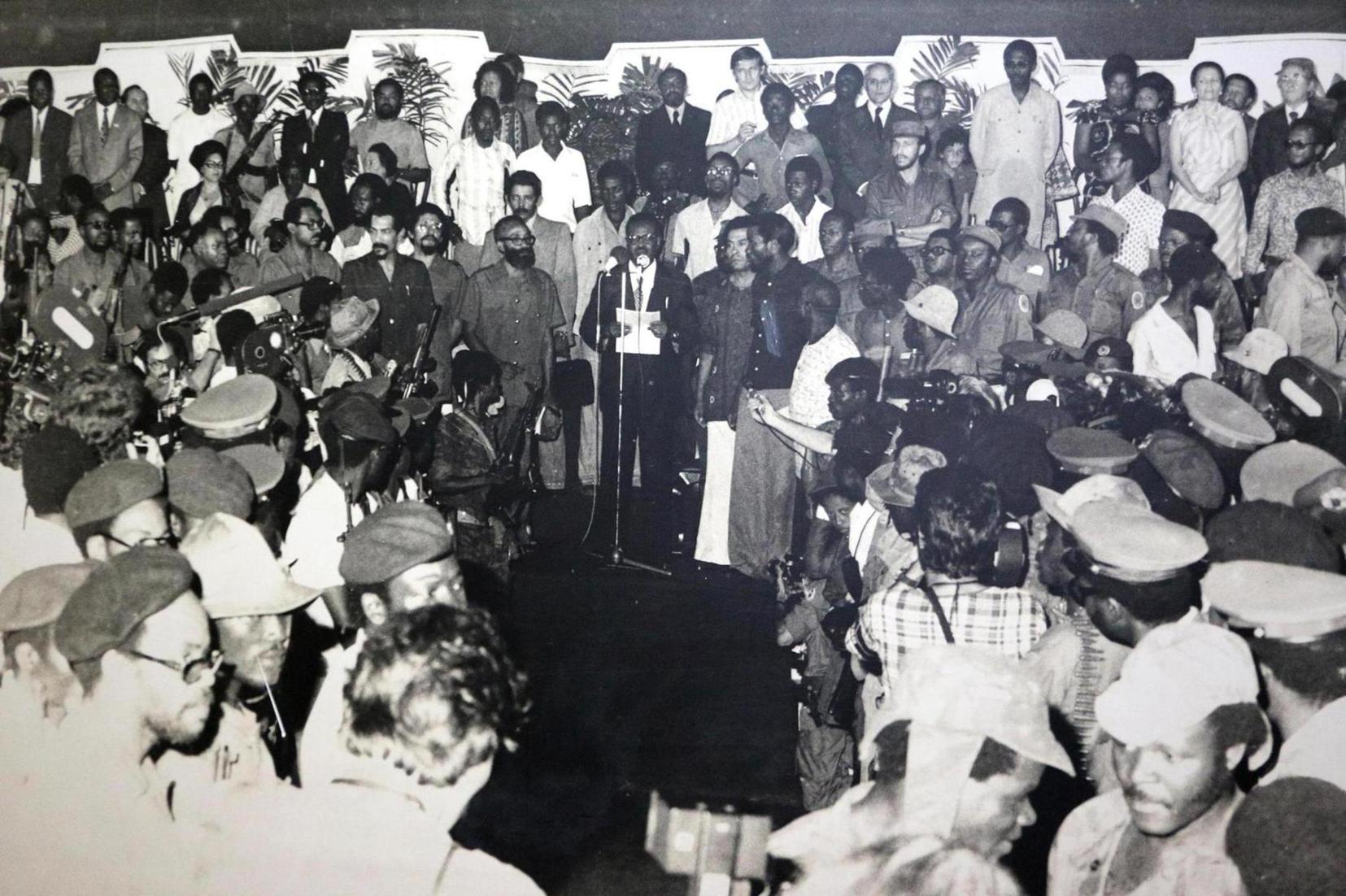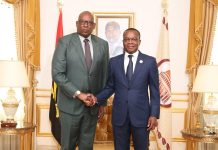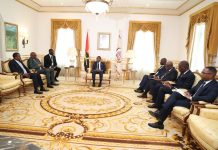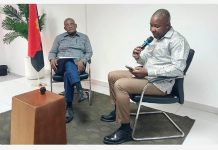Africa-Press – Angola. Angola marked this Tuesday, January 31, 2023, the 48th anniversary of the inauguration of its first transitional government, whose failure greatly determined the beginning of the war shortly after National Independence.
The transitional government resulted from an initially promising peace agreement signed in the Portuguese village of Alvor, in the Algarve, between Portugal and the three national liberation movements, namely the FNLA, MPLA and UNITA.
Its mission was to “prepare the ground” and lay the foundations for the emergence, in Angola, of a truly free, democratic and balanced post-colonial state.
Its composition already reflected a rehearsal of power sharing between Hólden Roberto’s FNLA, António Agostinho Neto’s MPLA and Jonas Savimbi’s UNITA.
With 12 ministers and nine secretaries of state, appointed in equal proportion, the transition was directed by a Presidential College of three members appointed by the three liberation movements as prime ministers.
Johnny Eduardo Pinnock, for the FNLA, Lopo Fortunato Ferreira do Nascimento, for the MPLA, and José de Assunção Alberto Ndele, for UNITA, were the members of this new governing body, tasked with exercising, on a monthly basis, the role of head of government .
Commitments assumed
In general, the transitional government was responsible, among other duties, for administering the country in partial and gradual replacement of colonial authority, preparing general elections for the Constituent Assembly and cooperating in the decolonization process until full independence.
It was therefore incumbent upon him to ensure the functioning of the public administration, conduct foreign policy, exercise the legislative function and reorganize the judiciary system.
Directing the national economy and guaranteeing individual and collective rights and freedoms was also part of the powers of the transitional government, under the terms of the Alvor Agreement, concluded on 15 January 1975.
In other words, with this agreement, power began to be exercised jointly by the transitional government and the Portuguese State, the latter through a representative designated as High Commissioner, but with the commitment to transfer, progressively, to the sovereign bodies Angolans, all the powers it held and exercised in Angola.
Any use of force was declared illicit and all “patriotic acts” committed during the course of the national liberation struggle, but punishable by the legislation in force at the time of their occurrence, were amnestied.
So far, everything looked like a “bed of roses” and well on the way to a peaceful transition of power between the colonizer and the colonized, towards the advent of a new sovereign and reconciled nation, with a leadership emerging from free, fair, democratic and democratic elections. transparent.
However, shortly afterwards, according to available data, signs began to emerge that “things were not going to work out”, that the transition project launched in Alvor was doomed to failure, mainly due to the inability of the Angolan parties to peacefully overcome their disputes.
It is said, for example, that the meetings of this government quickly became a “permanent stage” of verbal or even physical violence between the parties, which brought deep mutual mistrust carried over from the years of the struggle for independence.
Political intolerance ended up prevailing, contrasting with the apparent initial cordiality and optimism shown during and at the end of the peace negotiations.
In this way, the return to political-military hostilities was precipitated, at a time when Portugal, which still held and exercised the power of colonial authority, proved to be powerless to reverse the situation.
With its attention turned to managing the “damage” caused by the internal revolution triggered in the previous year, the Portuguese State was without resources or conditions to enforce the Alvor Agreement, observe some observers.
Successive non-compliance with the agreement, aggravated by the boycott or abandonment of the governing bodies by their holders, forced Portugal to finally suspend the validity of the Agreement, after a new failed attempt at reconciliation, in the Kenyan city of Nakuru.
The suspension was decreed on August 25, 1975, less than two months before the scheduled date for the holding of general elections, and almost two months after the Nakuru meeting in which the parties committed themselves to doing everything for the return of normality.
Thus, the premises were created for a prolonged civil war in the country, which would only end in 2002.
From Alvor to Nakuru
Before signing the Agreement, the leaders of the three liberation movements (FNLA, MPLA and UNITA) held two preliminary meetings to discuss the cessation of hostilities, agree on positions and negotiate Independence with Portugal.
The first meeting took place in July 1974, in Bukavu, then Zaire and the current Democratic Republic of Congo (DRC), and the second in January 1975, in the Kenyan port city of Mombasa.
Negotiations with Portugal would take place from 10 to 15 January 1975, culminating in the signing of what became known as the Alvor Agreement, a 60-article document in which the then colonial power solemnly recognizes the right of the Angolan people to independence. .
The recognition of the FNLA, MPLA and UNITA as “the only and legitimate representatives of the Angolan people” and the scheduling of general elections for October and Independence for 11 November 1975 join the formation of the transitional government as the great milestones of the Alvor Agreement.
Angola is declared as “a single and indivisible entity”, with Cabinda as an “integral and inalienable part” of its national territory on which a general ceasefire is decreed, reserving the use of force in duly authorized cases “to prevent internal violence or external aggression”.
Even so, the long-awaited peaceful transition ended up not happening, with the three liberation movements again at odds and the country grappling with a wave of violence that threatens to annul the Alvor Agreement.
In an attempt to correct the situation, a meeting was organized in Kenyan territory, from 16 to 21 June 1975, which became known as the “Nakuru Summit”.
At the end of the meeting, the parties recognized the lack of mutual trust due to political-ideological differences and political intolerance among the main causes of the deterioration of the political-military situation in the country.
For this reason, they pledged to create a climate of political tolerance and national unity, put an end to violence and intimidation, release all prisoners, accelerate the formation of the national army and disarm the civilian population, among other actions, to bring about a successful outcome. harbor the objectives set out in Alvor.
definitive rupture
As with previous commitments, very quickly Nakuru’s understandings became a dead letter, with strong disagreements between the leaders of the three liberation movements already under the effects of the Cold War between the socialist and capitalist blocs.
The definitive rupture was declared. Then followed violent clashes that culminated in three unilateral proclamations of Independence, respectively, in Luanda, Huambo and Ambriz.
The MPLA proclaimed the People’s Republic of Angola, with headquarters in Luanda, UNITA the Social Democratic Republic of Angola, in Huambo, and the FNLA the Democratic Republic of Angola, in Ambriz, in the province of Zaire.
Days later, the last two signed a pact, on November 23, 1975, and merged into a single coalition government for the People’s Democratic Republic of Angola.
Headquartered in Huambo, it had Holden Roberto and Jonas Savimbi as co-presidents and José Ndele and Johnny Pinnock as prime ministers.
But the Independence proclaimed in Luanda by António Agostinho Neto (MPLA) ended up prevailing, with the protection of the USSR and Cuba, against the will of the other two movements then supported by the West.
It is believed, therefore, that, if scrupulously complied with, the Alvor Agreement had everything to offer Angola a different course, with a little bit of everything except the violent civil war that mutilated it for almost three decades.
It is fair to say that the aforementioned transition, conceived as a preparatory mechanism for the proclamation of National Independence, then scheduled for 11 November 1975, ended up having a troubled path and contrary to the expectations of Angolans and Portuguese colonial authorities.
For More News And Analysis About Angola Follow Africa-Press






